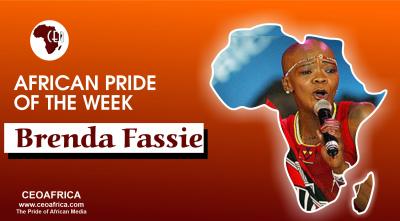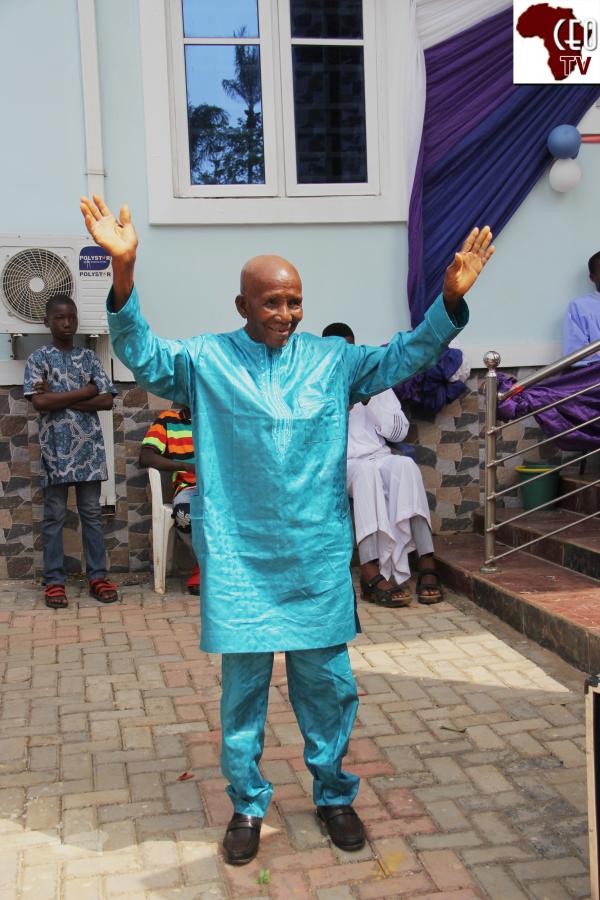
Sunday, 16 May 2021: With five South African Music Awards, (SAMAs), best-selling release of the decade, best song of the decade, best artist of the year (1999), and Life time Achievement Award in 2005, Brenda Fassie evolved as an artist, who stood in a class all by herself. Even today, when you think about African music, you can’t help but remember the sensational Brenda Fassie.
Today, CEOAFRICA takes a look at the life of this incredible African legend, who came to be known as ‘undisputed queen of the vocals’.
Named after the American singer, Brenda Lee, Brenda Nokuzola Fassie was born in a township near Cape Town known as Langa in Southern Africa on November 3rd 1964. Brenda’s mother, Makokosie Fassie, made her living by cleaning and also playing the piano. Due to her mother’s musical inclination, Brenda was inspired to pursue music, and at an early age, she was already singing for her mother. Tourists would even pay to hear the melodious voice of this little black girl. She may have been young, but Brenda was already thinking like an adult. Even her voice was said to be above her age. She formed her singing crew, Tiny Tots when she was just five years of age.
Eleven years later, Brenda who was now 16, had won over the heart of the whole town, and her fame even began to spread outside the town’s shores. In 1979, Koloi Lebona, a celebrated music producer came into town from Johannesburg and local musicians told him of this girl with a powerful voice. If he had any doubt that a teen would be as good as the people claimed, they were cleared when he got a chance to hear her sing. He couldn’t help but acknowledge that Brenda possessed the ‘voice of the future’.
Lebona returned to his family in apartheid ridden Soweto, Johannesburg with the young Brenda Fassie. She had agreed with him that she would finish schooling before starting a career in music. But fate had other plans. A vacancy was created when one of Joy’s singers went on maternity leave, and the enthusiastic Brenda couldn’t hold herself back. Joy was a trio that Brenda joined when she moved to Johannesburg. She also joined another music group, Blondie and Papa.
At the expiration of her contract with Joy, Brenda made an appearance on the Blondie and Papa road show before forming her popular group, Brenda and the Big Dudes.
When Brenda released her first single ‘Weekend Special’ in 1983, it was an instant hit. The song became the fastest selling record at the time with over 200, 000 copies sold. This was the song that shot her to international limelight. It was characterised by the disco-flavoured bubblegum style. Van Gibbs, a New York producer did a remix of the song, and it spent eight long weeks on the Billboard Magazine’s Hot Black Singles Chart. Owing to this level of international success, Brenda and the Big Dudes went on to tour places like the United States, Britain, Europe, Australia and Brazil.
For the rest of the 1980’s, Brenda established herself in the music world as a prodigious solo pop star. At the end of the 80’s, she started collaborating with Sello “Chicco” Twala, a partnership that proved to be one of the most successful in the history of South African music business. The album ‘Too Late for Mama’, which was born from this duo, achieved platinum status in 1989.
While her music career was soaring, Brenda’s personal life was in disarray. She attracted wild criticism from the public. She had a son with a member of the Big Dudes, Dumisani Ngubeni in the 80s. In what was rumoured to be spousal abuse, Brenda divorced her first husband, Nhlanhla Mbambo after two years of marriage. They had gotten married in 1989. Several newspapers carried the news of the divorce. Before their break up, the couple was sued for fraud.

After a brief absence from the music scene over struggles with drug abuse, Brenda came out of rehabilitation to make a comeback to the industry as the producer of her album ‘Now is the Time’, which featured two duets with Democratic Republic of Congo music legend, Papa Wemba. Her releases in the years that followed, especially the 1998 album, Memeza, which saw her team up with Chicco once more all recorded high success rates. Inits first year, the album was the best-selling South African release of the year. The album also earned her numerous South African Music Awards, (SAMAs). Brenda was a recipient of the Kora award for the best female artist on two consecutive occasions. The album she released next, Nomakanjani, earned triple platinum status within a few months of its release.
Following the success trail of Memeza, Brenda’s next projects, Nomakanjani (1999), Amadlozi (2000), and Mina Nawe (2001) were all top sellers, and for four years in a row Fassie took home the South African Music Awards' prize for the Best-Selling Album of the Year.
Brenda’s global fame was resuscitated in 2001 when she toured the United States once again. Towards the end of that year, Fassie enjoyed a three-page article feature by Time magazine calling her the "Madonna of the Townships." Her South African fans referred to her as "Ma-Brrr."
On 26 April 2004, Fassie slipped into a coma after she was rushed to a Johannesburg hospital with cardiac arrest. Her condition attracted sympathy from all over the country, and for two weeks, fans held prayer services for her. They also showed tremendous support for her friends and family. However, she passed away on 9 May, 2004.
What initially was thought to be heart failure resulting from an asthma attack, was later discoveredto be caused by drug overdose. Furthermore, it is believed that the crack cocaine she smoked the night before her cardiac arrest contained with rat poison.
She was buried on 23 May in her hometown, Langa. She left behind a 19-year-old son, Bongani Fassie.






















